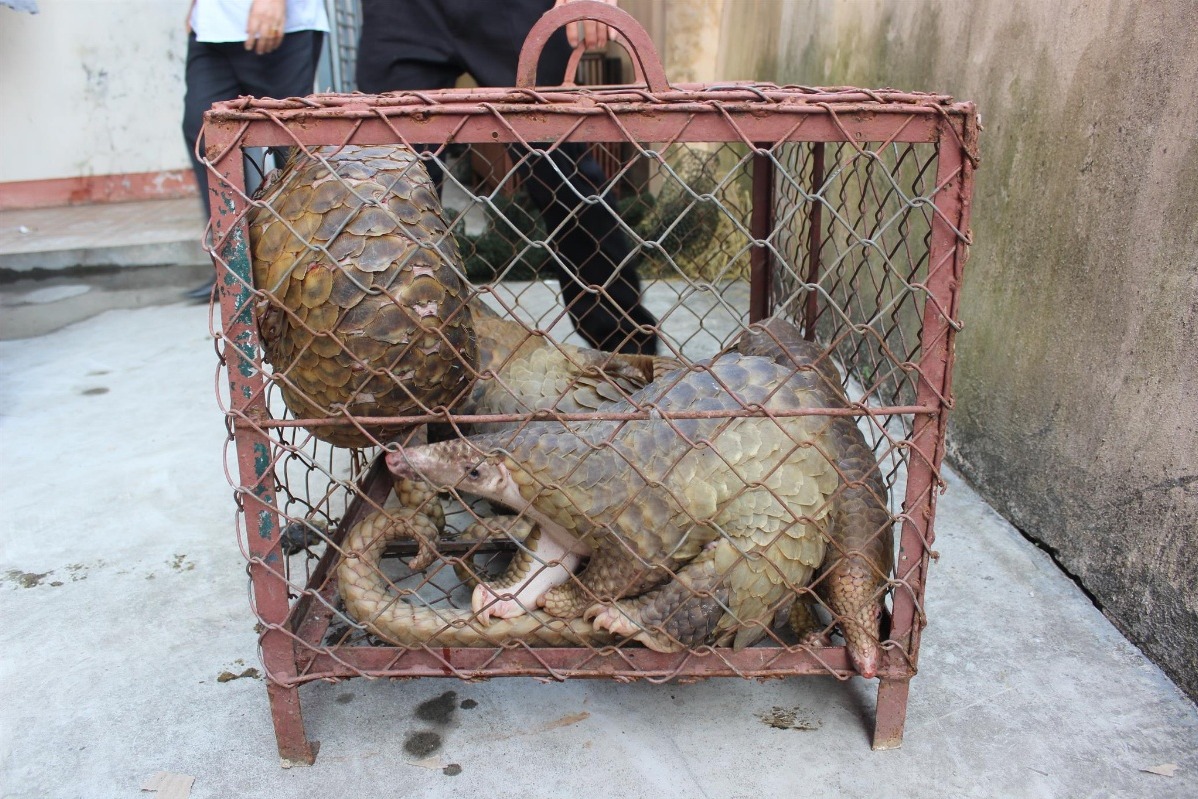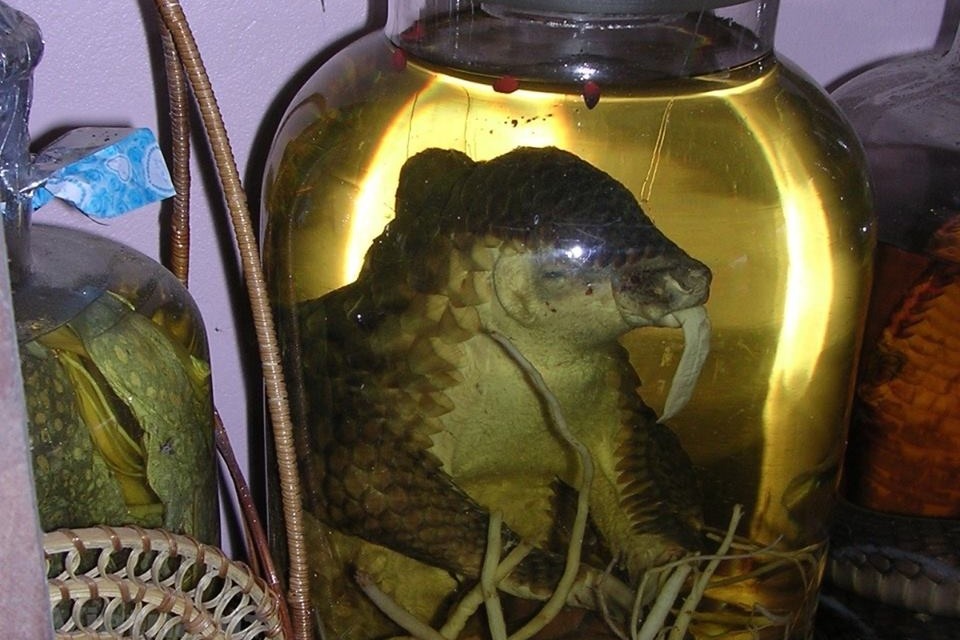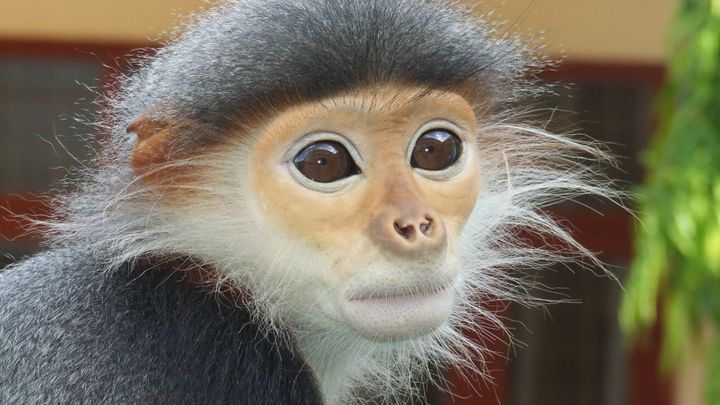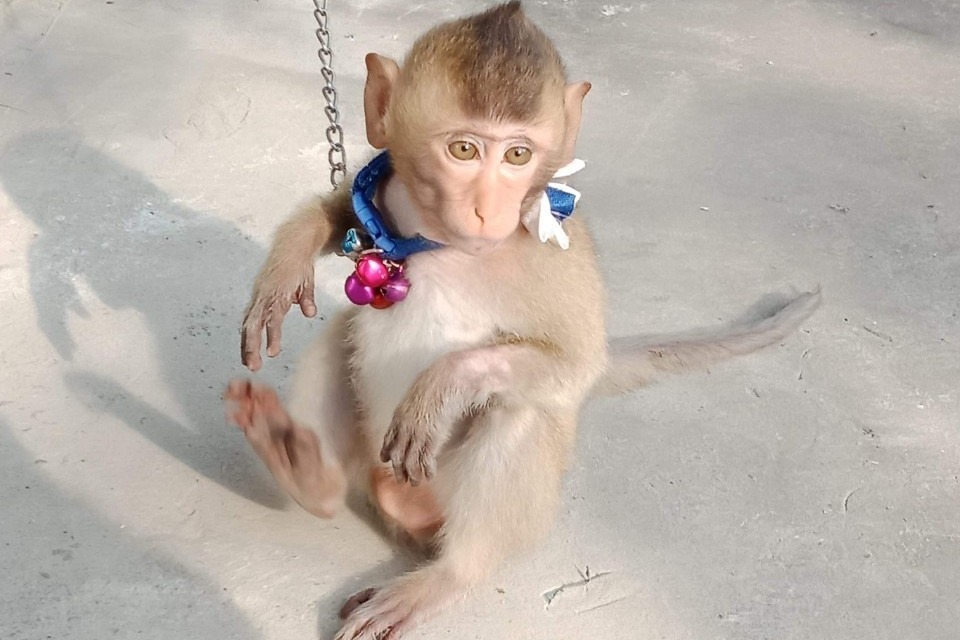
Protect the pangolin
Pangolins are currently on course to be the next dodo. Prized for their scales by traditional Chinese medicine and as exotic bush meat, the pangolin is facing a cliff-face struggle for survival as organized crime also makes use of pangolin scales as currency and, unbelievably, in the manufacture of methamphetamine.
Education for Nature – Vietnam is dedicated to ensuring that the unique and enigmatic pangolin survives. Our multi-pronged approach involves reducing consumer demand, strengthening legislation and working closely with law enforcement to disrupt and dismantle the criminal networks behind this disgusting trade. With your help, we can attack both the supply and demand ends of the chain which currently makes the harmless scaly, ant-eating pangolin the world’s most illegally trafficked wild mammal. Your donation - however small - will make an immediate difference to the outcome.
Donate today and be part of the solution! Lucky pangolin released back into nature
Lucky pangolin released back into nature
Your donation will be used to support our investigations team, the Wildlife Crime Unit hotline and our consumer demand reduction activities in Vietnam—a country that is the primary transit state for the Chinese market to the north, as well as a supplier and consumer. As a lynchpin for the illegal trade in pangolins, it is crucial that decisive action is taken in Vietnam if the pangolin is to survive as a species in the long term.

What ENV is doing to protect pangolins
* Responding to pangolin crime reports and assisting law enforcement to investigate and prosecute offenders
* Arranging rescue center places for confiscated pangolins
* Carrying out intelligence-led investigations and supporting domestic and international law enforcement agencies
* Operating a national toll-free wildlife crime hotline to receive reports of crimes involving pangolins and other endangered wildlife
* Conducting regular targeted surveys of retail establishments – including traditional medicine shops - to monitor for pangolin violations
* Partnering with 10 Vietnamese ministries to display pangolin awareness panels in the foyers of Government buildings
Major ENV pangolin successes
* ENV halted the local authorities auctioning off confiscated pangolins
* And campaigned for tougher punishment of pangolin crimes in Vietnam, successfully persuading lawmakers to increase the maximum prison sentence from seven years to 15 years in the new 2018 Penal Code
In 2018, a total of 109 cases involving 128 pangolin-related violations were reported via ENV’s hotline. Sixty-six of these violations involved the advertising and sale of pangolins, 52 comprised smuggling and trade operations, seven violations involved the possession of pangolin or pangolin parts and three violations involved hunting. Among the ‘highlights’ of 2018, were the seizure of 3.8 tonnes of pangolin scales in Ho Chi Minh City by Customs acting on intelligence from ENV and monitoring the recovery operation of 74 pangolins seized by the authorities in Thanh Hoa province following a truck stop.
And just recently we were able to rescue two live pangolins in Ho Chi Minh City (Saigon) following a tip-off to our toll-free wildlife crime hotline. The two Sunda pangolins, each weighing just over a kilogram (around 2.2 lbs.) were quickly recovered and whisked off to a rescue center just north of the southern city to be monitored with a view to later release back into nature. A third pangolin was recovered in Hue, central Vietnam, following a call to our toll-free wildlife crime hotline. Lucky to be alive, pangolins intercepted in transit
Lucky to be alive, pangolins intercepted in transit
About pangolins
There are eight species of pangolin spread across Asia and Africa. Pangolins, also known as 'scaly anteaters', are covered in hard protective scales. These scales are made of keratin, the same substance that’s in human hair and nails. Pangolins use their long, sticky tongues, which they can extend as much as 40 cm, to eat ants and termites. Their scales effectively become armor plating when the pangolin rolls into a tight ball when threatened by predators. Unfortunately, this method of defense makes them particularly vulnerable to poachers.
Pangolins are fully protected under Vietnamese law and banned from commercial trade under the international treaty regulating the trade of endangered wildlife, CITES (the Convention on International Trade in Endangered Species of Wild Fauna and Flora). It is illegal to hunt, trap, keep, kill, transport, sell or advertise pangolins or pangolin products in Vietnam.
In Vietnam, pangolins are commonly consumed as specialty dishes at restaurants, soaked and served in wine, or used in traditional medicine. While the demand for pangolin meat and scales is a growing problem in Vietnam, the majority of traded pangolins are being smuggled to China. Pangolin in wine
Pangolin in wine
Act now. Donate today!
· $50 will rescue a pangolin reported to ENV by the public. ENV will ensure that the pangolin is transferred to a rescue center with a view to release back into the wild
· $100 helps support the operation of ENV’s national Wildlife Crime Hotline through which the public reports pangolin crimes.
· $150 will support the ENV Rapid Response Team in assisting police on location in cases involving live pangolins. The response team facilitates the transfer of animals to appropriate rescue centers.
· $1,000 supports one ENV volunteer “outpost” for a year. Each outpost is composed of volunteers who are recruited and trained to monitor restaurants and markets, report violations and host local awareness activities urging the public not to consume pangolins and other endangered wildlife. ENV outposts are currently active in 17 cities throughout Vietnam.
Every dollar counts when it comes to rescuing these beyond-precious pangolins from the illegal wildlife trade.
* See our pangolin PSA video playlist on YouTube
 Pangolins on the way to Hanoi Wildlife Rescue Center
Pangolins on the way to Hanoi Wildlife Rescue Center
- B
- A
- A





 The end is in sight for bear farming in Vietnam
The end is in sight for bear farming in Vietnam
